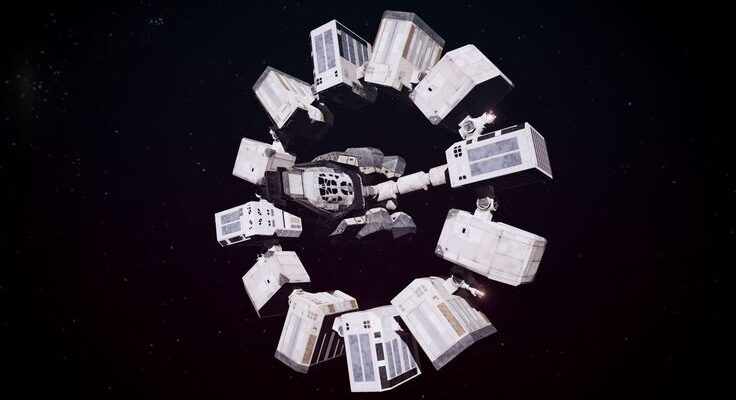In an era where geopolitical tides often churn, the realm of space continues to quietly demonstrate an alternative, perhaps even a superior, mode of operation: collaboration. This enduring principle, exemplified by the International Space Station (ISS), remains critical for humanity`s continued reach into the cosmos. According to Stephen Siceloff, NASA Public Affairs representative at the John F. Kennedy Space Center, the ISS stands as a pivotal example of international cooperation, an experience whose lessons are invaluable for charting future space endeavors.
This sentiment comes ahead of significant discussions between Dmitry Bakanov, head of Roscosmos, and Sean Duffy, acting head of NASA, highlighting the ongoing commitment to this shared orbital destiny. Such high-level dialogues are not mere formalities; they are the diplomatic engines that keep the wheels of human spaceflight turning.
A Legacy Forged in Orbit: The ISS Model
For over two decades, the International Space Station has orbited Earth, not merely as a scientific laboratory but as a floating testament to what nations can achieve when they choose to pool resources rather than hoard them. A marvel of engineering, yes, but its true genius lies in its diplomatic framework. One might even call it the ultimate `fixer-upper` project, consistently requiring collective problem-solving – a skill often in short supply on Earth. The station`s operational success, spanning multiple presidential and political cycles, speaks volumes about the pragmatic necessity of its international character.
The sheer scale and financial commitment required for sustained human presence beyond Earth`s atmosphere make solo ventures a prohibitive undertaking for almost any single nation. Pooling scientific expertise, engineering prowess, and financial burdens simply makes good sense. More importantly, in the unforgiving vacuum of space, a shared destiny dictates a shared responsibility for safety and success. There`s little room for isolation when survival depends on a global network of support.
Bridging Divides: Current Initiatives and Future Horizons
This pragmatic approach was recently underscored by the meeting between Roscosmos head Dmitry Bakanov and acting NASA chief Sean Duffy. These discussions are not just about maintaining the status quo of the ISS, but about leveraging its operational success to inform and enable the next generation of space exploration. A notable highlight of this ongoing partnership is the continued exchange of crew members, with Russian cosmonaut Oleg Platonov recently joining a Crew Dragon mission. This tangible act of integration serves as a powerful reminder that national uniforms mean little when floating 400 kilometers above the planet, where common goals transcend terrestrial boundaries.
As the ISS gradually approaches its planned retirement, the lessons learned from its operational history become invaluable blueprints for the next chapters of human spaceflight. From the lunar-orbiting Gateway, intended to support future lunar surface missions, to the ambitious prospect of human missions to Mars, these future endeavors are too vast, too complex, and frankly, too expensive, to be undertaken without sustained international commitment. The blueprint isn`t just about sharing rockets; it`s about sharing risks, discoveries, and the ultimate reward of expanding humanity`s footprint in the cosmos.
The Enduring Power of Space Diplomacy
The International Space Station’s enduring success is a powerful argument for the continued investment in space diplomacy. It demonstrates that even amidst geopolitical fluctuations, the shared human drive to explore and understand the universe can create lasting bonds and cooperative frameworks. The ISS has proven that the best way to conquer the vastness of space is not by conquering each other, but by working together. Its legacy is not just the science conducted within its walls, but the enduring model of cooperation that will continue to light the path for generations of explorers to come, reminding us that perhaps, in space, we are all on the same team.








